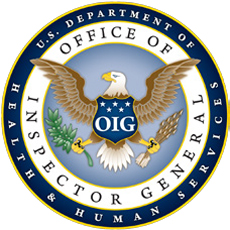

The state of New York should reimburse the federal Medicaid program $1.9 million and strengthen oversight of its Medicaid assisted living program, the U.S. Health and Human Services Department’s Office of Inspector General recommends after its first audit of the program since 2006.
The state agency neither concurred nor disputed the findings but provided some additional documentation that OIG used to revise its report where necessary, the agency said.
“The state agency also stated that it currently performs oversight and monitoring of the ALPs that reflect our recommendations,” the OIG concluded. “We maintain that our findings, as revised, are valid.”
The OIG conducted site visits at five assisted living communities to review the state’s monitoring and oversight of providers’ compliance with life safety and emergency planning requirements under Medicaid assisted living programs. The audit covered 195,373 beneficiary-months of assisted living providers’ services, with federal Medicaid payments totaling $244 million for calendar years 2017 through 2018 (the audit period). The audit covered a random sample of 100 beneficiary-months of assisted living services.
According to the OIG, although the state agency was able to verify that life safety and emergency planning requirements were met at those five assisted living communities, the state claimed reimbursement for some unallowable assisted living services over the audit period. The bottom line is that Medicaid assisted living program providers met life safety and emergency planning requirements, but they did not always ensure that the providers met federal and state requirements, the OIG determined.
Investigators found that New York improperly claimed an estimated $1.9 million in federal Medicaid reimbursement for assisted living services during the audit period. Additionally, the audit found that assessments and care plans were not valid or were missing, and some nurse’s aides qualifications were not documented. As a result, the OIG reported, some Medicaid assisted living beneficiaries may not have received services they were entitled to, may have received unnecessary services or may have received services from unqualified staff.




